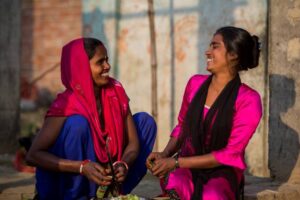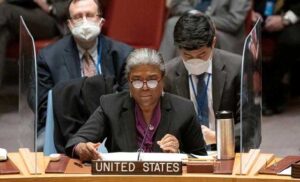Ensuring the code of conduct is followed, that candidacies are inclusive, and the expense ceiling is adhered to are as important as ensuring that elections are peaceful.
By Alok Pokharel
On May 13, eligible Nepali citizens will vote to elect their local representatives, and later this year, also vote to elect their representatives at the provincial and federal levels. The Election Commission wanted at least 120 days to prepare for the local elections but the Sher Bahadur Deuba-led federal government announced elections for mid-May on February 7, providing only 90 days. Nevertheless, the Election Commission has been busy preparing for polls in this short span of time.
In 2017, local elections were held in three phases. Even then, the government had provided a similar time frame. While the commission has publicly said that it can conduct elections within the given timeframe, there are concerns about its administrative and logistical preparations that could likely impact the quality of the polls.
In Nepal, over the years, the electoral management body, election observers, the media, and political analysts have focused more on voter turnout, registered voters, and voting centers. However, the issue of invalid votes, voter education, enforcement of the code of conduct, and other governing aspects do not receive enough attention. This is where the Election Commission should focus for the upcoming local polls.
Excessive invalid votes
In 2017’s local elections, many local units had a higher percentage of invalid votes than accepted by international standards. Invalid votes higher than four percent are considered abnormal, according to databases from the ACE Electoral Knowledge Network and International IDEA, requiring systemic interventions.
High percentages of invalid votes were found both in urban and rural local units during the last local elections. For example, Tumbewa Rural Municipality in Panchthar had 13.41 percent invalid votes, Kaike Rural Municipality in Dolpa had 14 percent, Bideha Municipality in Dhanusa had 19.87 percent, and Biratnagar Metropolitan City in Morang had 24.07 percent, according to the Election Commission’s district-wise local level election report. It was also reported that Lalitpur had 17.1 percent and Kathmandu 16.2 percent of invalid votes.
In the local election’s first-past-the-post system, a 10 percent margin can be large enough to swing the election in favor of one candidate, so we can assume that the results could have been different had there been a lower percentage of invalid votes, assuming the invalid votes were skewed against one candidate.
Many observer groups, such as the Democracy Resource Center Nepal and the Election Observation Committee Nepal, reported that the lack of adequate voter education was a major factor behind the high number of invalid votes.
Voter’s education is an important aspect of any election and, if conducted well, can inform how and where to register as a voter, how to vote, and the role of voters. It can also help avoid potential vote-buying, thereby increasing the quality of elections and voting.
The Election Commission has developed programs and directives in and around voter education, but many of these are only implemented just before elections, not between elections. The Election Education and Voter Education Directives, 2022, a key instrument for voter education, was only implemented on March 29, a month and a half before the planned election. Providing voter education only after elections have been announced limits the efficacy of such education drives. Internationally, voter education is conducted throughout the year, such as in Australia and Canada, and many nations have adopted voter education into their civic education programs – an initiative that the government and the Election Commission should consider for future elections.
Governing local polls
The enforcement of the election code of conduct is another important aspect integral to the quality of elections. Political parties contesting the upcoming local elections have already questioned certain provisions of the election code of conduct, with one of the major parties, the CPN-UML, even refusing to sign the commitment letter. Political parties were particularly concerned with Section 36 of the Election Code of Conduct, 2022, which requires incumbent local representatives to resign from their posts before being able to contest the upcoming polls again. This provision was even challenged at the Supreme Court through a petition, which the court dismissed. Given their reservations, the political parties are less likely to adhere to the election code of conduct.
Furthermore, incidents that violate the election code of conduct are simply flagged by the Election Commission without any substantial penalties. There is a wide belief amongst political parties, candidates, and even election officials themselves that the code of conduct is just a moral standard and not enforceable. Such an understanding is detrimental to effectively governing elections.
Studies by the Democracy Resource Center Nepal and the Election Observation Committee Nepal, along with media reports, show that campaign expenses during the 2017 local elections were significantly higher than the ceiling set by the Election Commission. A study conducted by the Election Observation Committee Nepal showed that an average of Rs 1.73 million was spent by mayoral candidates, against the expense limit of Rs 0.75 million (for mayoral candidates of a metropolitan city) allowed by the Directives on Local Level Election 2017.
Access to funds
In 2017, election campaigns were not only expensive but also largely unregulated and unpunished by the Election Commission. The commission’s ignorance or failure to take action against parties and candidates violating laws on campaign expenses meant that elections were not fair, especially for candidates who could not afford to spend large sums. Such instances are also discouraging to women and candidates from marginalized communities, who are less likely to have access to funding. In a truly free and fair election, access to funds should not deprive candidates from standing nor should it determine the outcome of an election.
Concerns have been already made about the campaign expense ceiling. Many have held that the ceiling – for instance Rs 700,000 in case of a mayor of a metropolitan city – is not practical and will not reflect actual expenses. Ex-election commissioners and politicians have publicly stated that candidates spend millions in major metropolitan cities. Shashank Koirala, a senior politician from the Nepali Congress, recently made a public statement that he had spent Rs 60 million during the 2017 parliamentary elections. The Election Commission duly sought a clarification from him.
In Nepal, elections are still held to be ‘free and fair’ if voting goes relatively peacefully and there is a high voter turnout. But these are minimum standards. A successful election needs to be judged from a broader set of parameters, including issues of voter education and the extent of invalid votes, enforcement of the election code of conduct, and the role of moneyed interests in politics.
These aspects should all be considered while judging the quality of the upcoming election.
Inclusive practices
Additionally, there are other aspects important in governing the upcoming local polls. The Election Commission should ensure that inclusive practices are followed while appointing election officials and during candidacy and nomination processes; election officials and volunteers are adequately trained; any electoral disputes at any levels are settled promptly; election centers are easily accessible to people, especially to persons with disabilities; all political parties and candidates are treated equally throughout the electoral cycle; fairness and transparency in electoral processes; and that election results are declared soon. Many of these were lacking during the 2017 local elections.
With less than a month left until local elections, it is important that the Election Commission adopts measures to fulfil its larger responsibilities. That would not just improve the upcoming local elections, but also set up foundations for the provincial and federal elections later in the year.
Alok Pokharel is an advocate, currently teaching law and researching on constitutional and legal issues.
This piece has been sourced from Record Nepal.
















